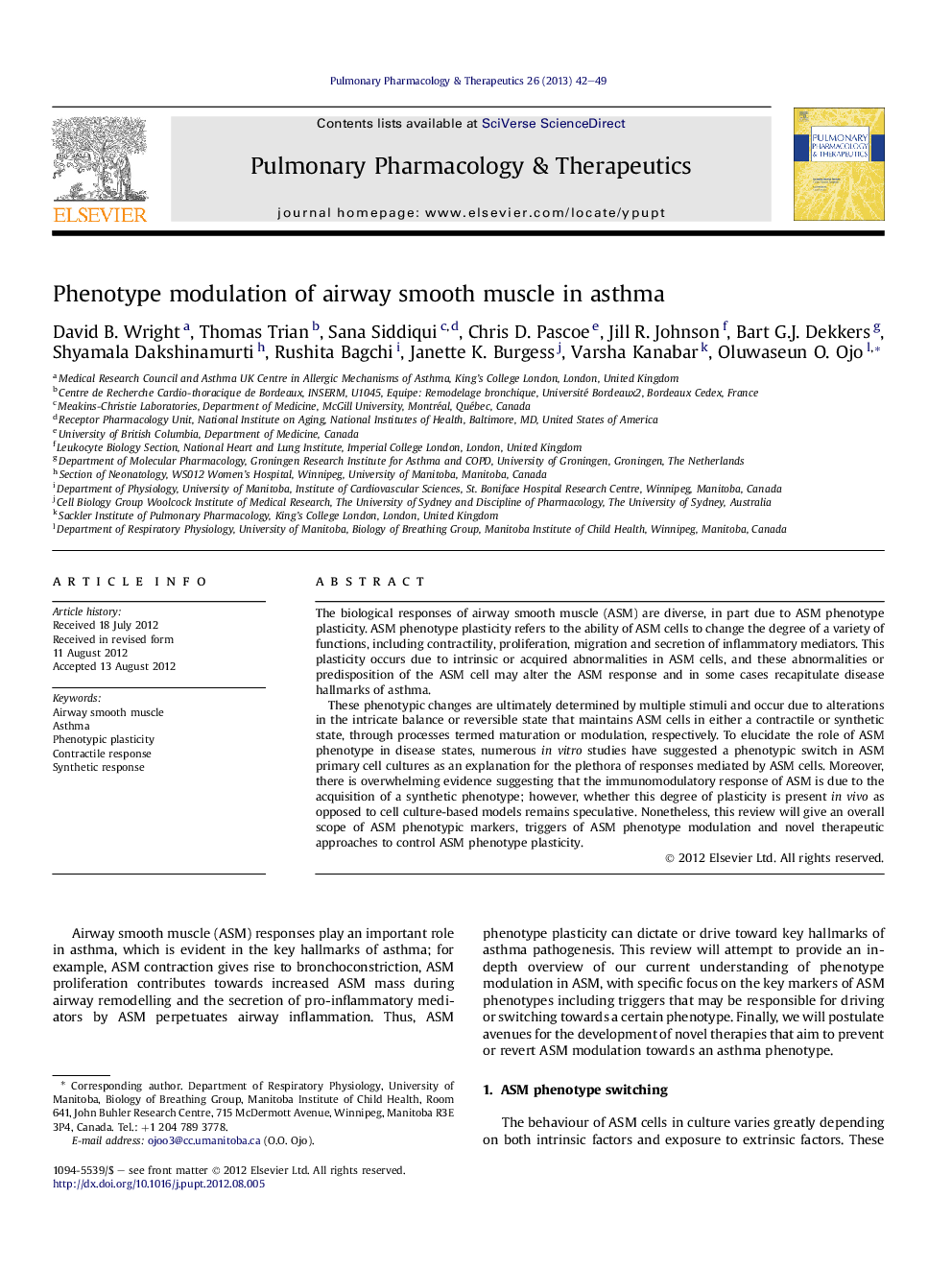| Article ID | Journal | Published Year | Pages | File Type |
|---|---|---|---|---|
| 2567332 | Pulmonary Pharmacology & Therapeutics | 2013 | 8 Pages |
The biological responses of airway smooth muscle (ASM) are diverse, in part due to ASM phenotype plasticity. ASM phenotype plasticity refers to the ability of ASM cells to change the degree of a variety of functions, including contractility, proliferation, migration and secretion of inflammatory mediators. This plasticity occurs due to intrinsic or acquired abnormalities in ASM cells, and these abnormalities or predisposition of the ASM cell may alter the ASM response and in some cases recapitulate disease hallmarks of asthma.These phenotypic changes are ultimately determined by multiple stimuli and occur due to alterations in the intricate balance or reversible state that maintains ASM cells in either a contractile or synthetic state, through processes termed maturation or modulation, respectively. To elucidate the role of ASM phenotype in disease states, numerous in vitro studies have suggested a phenotypic switch in ASM primary cell cultures as an explanation for the plethora of responses mediated by ASM cells. Moreover, there is overwhelming evidence suggesting that the immunomodulatory response of ASM is due to the acquisition of a synthetic phenotype; however, whether this degree of plasticity is present in vivo as opposed to cell culture-based models remains speculative. Nonetheless, this review will give an overall scope of ASM phenotypic markers, triggers of ASM phenotype modulation and novel therapeutic approaches to control ASM phenotype plasticity.
